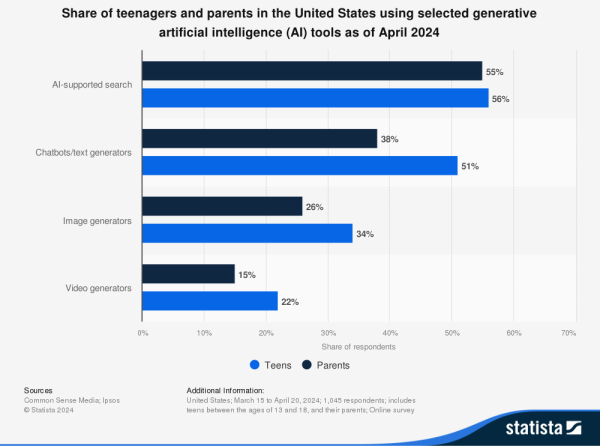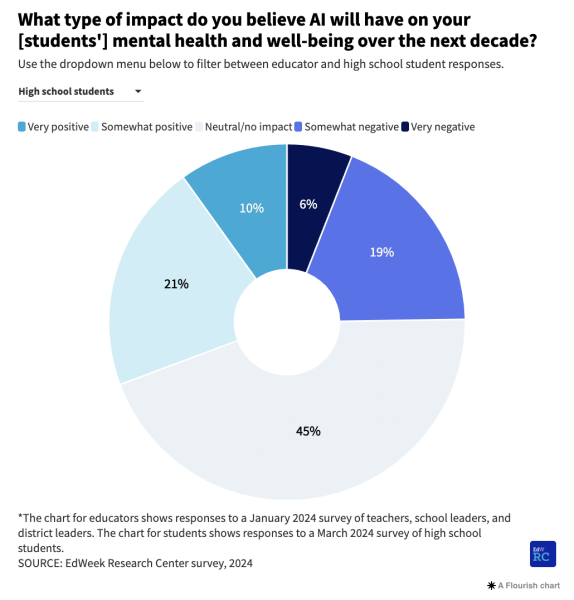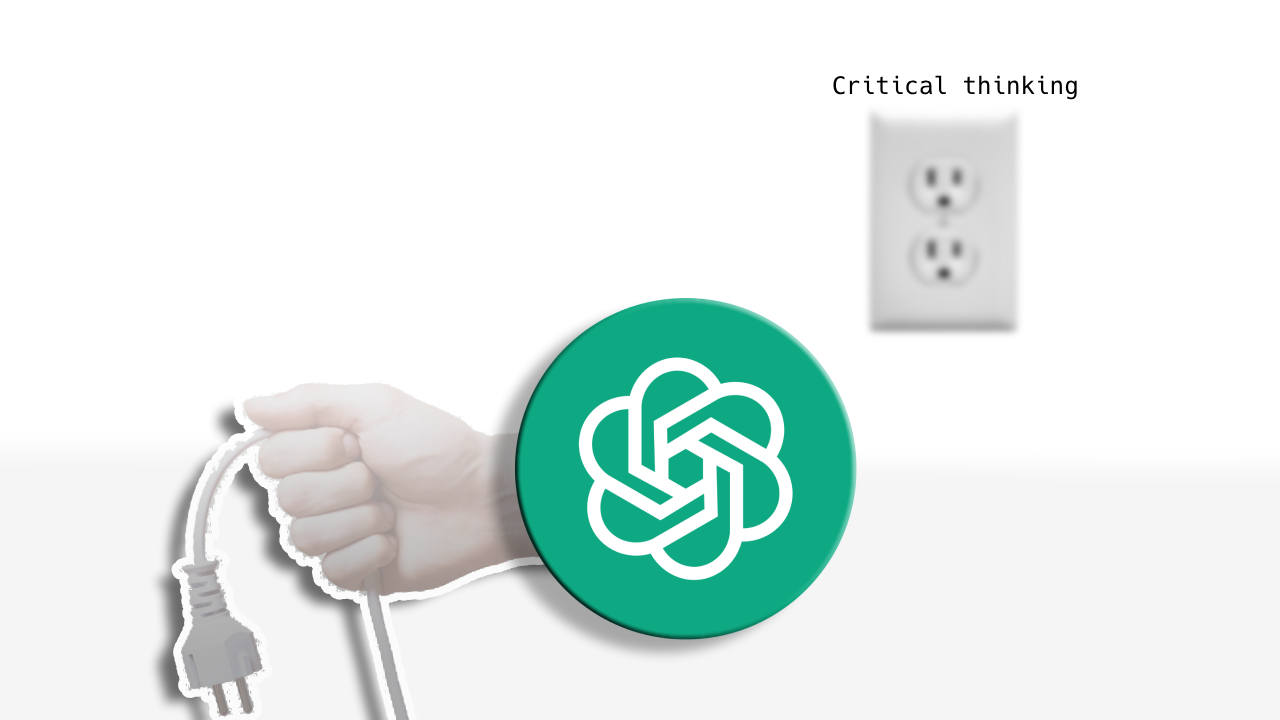AI has been around for many years, but the increased use of generative AI by teens has sparked a lot of controversy. While AI has some hardcore supporters, others are concerned about how AI will impact learning and cognition.
 Technological innovation almost always comes with a price. AI has proved a remarkable tool for some. It is being used to analyze data, improving medical diagnoses and increasing efficiency. At the school level though, this new tool may pose a threat to student integrity and disrupt the development of critical thinking skills. Common Sense media investigated the prevalence of AI usage among teens, finding that 7 out of 10 admit to using the technology at school and at home.
Technological innovation almost always comes with a price. AI has proved a remarkable tool for some. It is being used to analyze data, improving medical diagnoses and increasing efficiency. At the school level though, this new tool may pose a threat to student integrity and disrupt the development of critical thinking skills. Common Sense media investigated the prevalence of AI usage among teens, finding that 7 out of 10 admit to using the technology at school and at home.
“I think AI should be a tool for certain assignments,” one anonymous Bethel student stated. “It just depends on where.”
In a recent survey of over 1,000 teens, Education Week found that most students view AI positively. 19% indicated they thought AI would have a “very positive” effect on their mental health and well being, and 45% indicated it would have a “somewhat positive” effect. Only 6% felt that it would have a “very negative” impact.
At Bethel, students and staff seem at odds on the usage of AI. Some teachers believe that AI can be useful, but only when applied to specific assignments and used transparently.
“I think that you should still be able to put your own ideas into it [assignments] considering it is your work,” Meghan Thayer, who teaches courses in 3D art and sculpture, stated. 
Educators seem to agree AI can be a helpful tool in some aspects. Certain educational websites are starting to integrate AI to help teachers create questions and spot grammatical errors. Nevertheless, educators who use these softwares express concerns about issues that come with the excessive usage or abuse of AI.
“Some of my colleagues have played around with using AI to help them grade and enhance lesson plans,” Leia Boudet, who teaches English and journalism, revealed. “In my experience though, AI makes lots of mistakes, and I feel relying on these faulty tools would be somewhat hypocritical.”
A recent study by researchers from the University of Pennsylvania seem to confirm educators’ fears that reliance on AI is harming teen learners. They compared the performance of students who relied on ChatGPT to complete practice problems with those that did not. The former scored worse on tests than their peers who did not use AI to study.
Programs such as Canva have been seen to have AI built into its software to ‘assist’ with creating graphics for school projects. A lot of students are not aware that they are not actually creating things themselves when they turn to AI for art projects. Even the SCA – student council association has been well acquainted with the usage of AI to create posters and tickets to advertise school events.
In fact, it is in the creative and artistic sector that AI has possibly had the most noticeable effect at Bethel. If AI is relied on too heavily, it can take away artistic integrity. AI creations are oftentimes very similar and lack individuality and depth.
“If AI gets to the point where the realism is there, then how many millions of people are out of a job, and how will that affect the economy,” Christopher Fredericks, Bethel’s animation teacher, observed.
In essence, AI is slowly becoming a “crutch” for students instead of a tool to be relied on occasionally. When teens encounter a problem, they can conduct a simple search: no thinking required. When teens have to create something, they can use an AI assistant: no creativity required.
“You kind of lose that humanity,” Christopher Fredericks concluded.



